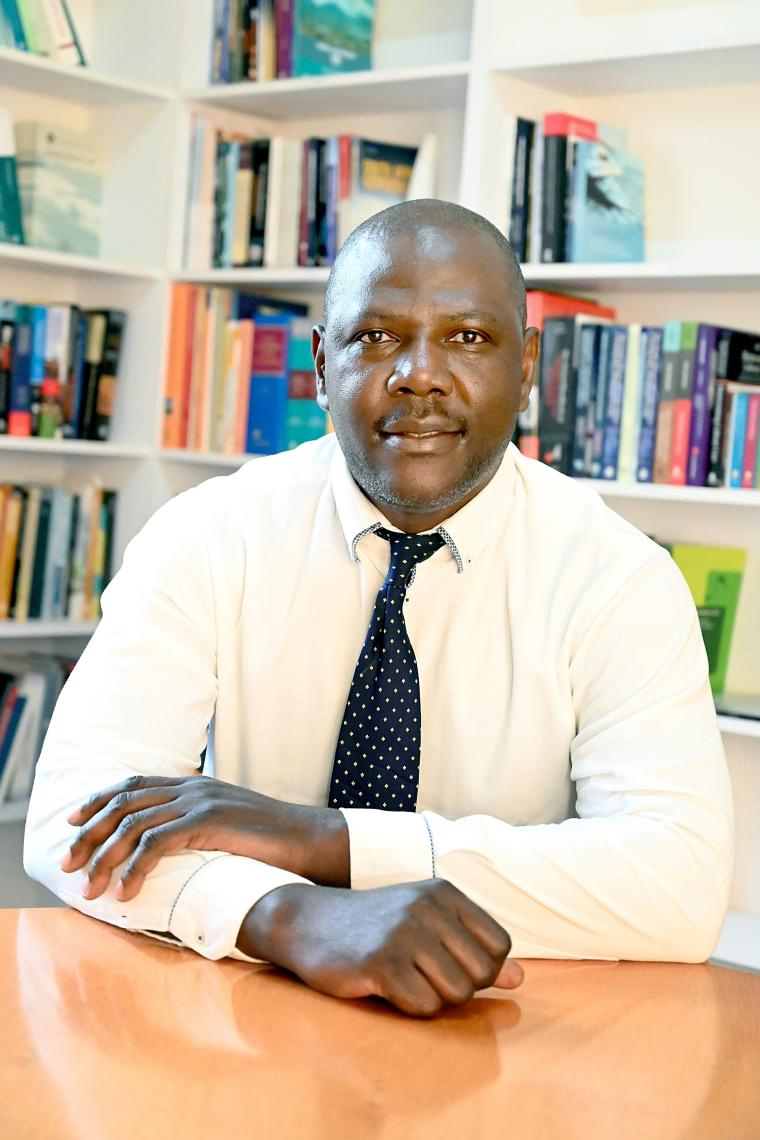Three decades into democracy, South Africa’s cities remain central to the country’s pursuit of social justice but continue to fall short. That was the message from Prof Oliver Fuo, SARChI Chair in Cities, Law and Environmental Sustainability (CLES), during his inaugural lecture on 4 September at the North-West University’s (NWU’s) Potchefstroom Campus.
“The overarching research question that has animated my legal scholarship in the past 13 years is: What role can cities play in advancing the transformative constitutional mandate of social justice in South Africa?” Prof Fuo told an audience of academics, colleagues and students.
He argued that the commitment to social justice is primarily concerned with eradicating poverty and extreme inequalities in access to material resources, the aim being to ensure that those living in poverty command the resources needed to interact with others as equals in socio-political life.
Prof Fuo also indicated that the success of cities to advance social justice depends on a variety of factors, including the suitability of the applicable legal and policy frameworks, the nature of their interaction with multiple role-players, and their ability to sustainably manage fiscal and environmental resources.
Citizens frustrated and disappointed
He argued that local governments hold the legislative, executive and administrative powers necessary to drive socio-economic transformation, yet progress had been limited as a result of inadequate funding, financial mismanagement, corruption, limited accountability and capacity failures.
“Millions of South Africans are frustrated and deeply disappointed,” he said, citing government and academic sources that show 65% of municipalities are in severe financial distress. He argued that failure to adequately plan and respond to climate change will further exacerbate the service delivery challenges faced by cities.
Drawing from his research, Prof Fuo highlighted how municipalities could redistribute resources, promote public participation, protect human rights, promote intergenerational and intragenerational equity in local development efforts, and sustainably manage resources in order to advance social justice.
He pointed to case studies such as the City of Tshwane’s disputes with provincial authorities over the provision of ambulance services during the Covid-19 pandemic to illustrate how constitutional mandates and power struggles between spheres of government further complicate municipal responsibilities.
The problem of ‘primitive accumulation’
Corruption diverts critical resources away from the poor, he warned. “Some of our local leaders who loot municipal resources practise what Prof Patrick Lumumba of Kenya has called primitive accumulation, buying up to 11 personal fancy cars,” Prof Fuo said. “Until this scourge is contained, the pursuit of social justice will remain elusive.”
Quoting Dr Naledi Pandor’s remarks at a recent memorial lecture, he added: “We have forgotten that we exist to serve the people, that we exist for the people. And we have lost our glory.”
Beyond critique, Prof Fuo outlined his plans to strengthen municipal and academic capacity. He intends to expand training for local government officials, supervise postgraduate research, and develop new programmes in local government law and policy. He is also preparing international publications on city-level accountability and climate governance.
His plans for the future are to consolidate his research through international collaborations, expand the SARChI CLES cohort of postgraduate students, and design new capacity-building programmes for municipalities. Prof Fuo also hopes to secure future NRF funding cycles, with the long-term aim of turning the SARChI Chair into a self-sustaining centre by 2035.
“Without building the required capacity in local government and ensuring accountability for corruption, the pursuit of social justice will remain elusive,” he concluded.

Prof Oliver Fuo.
